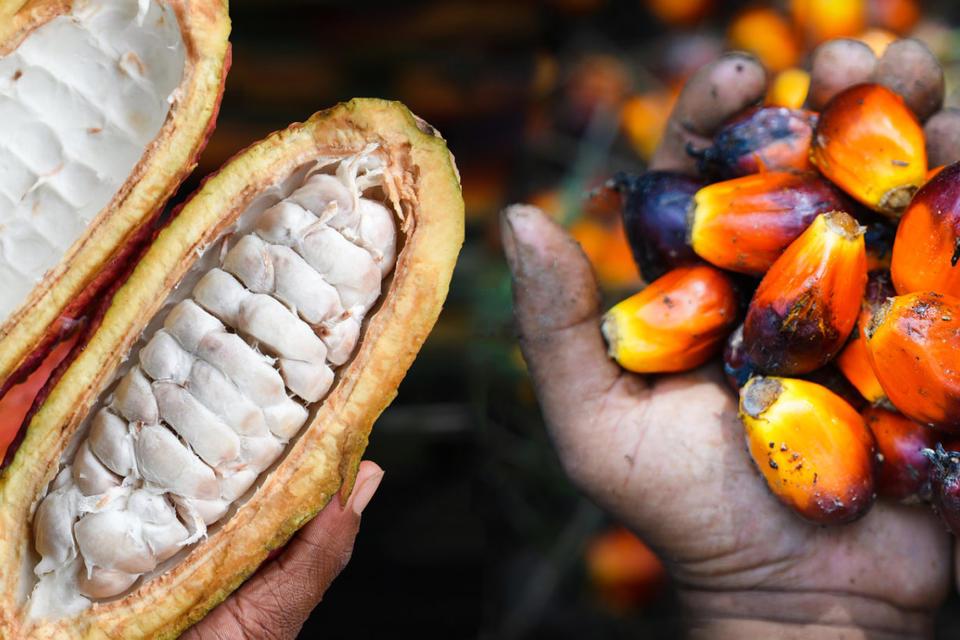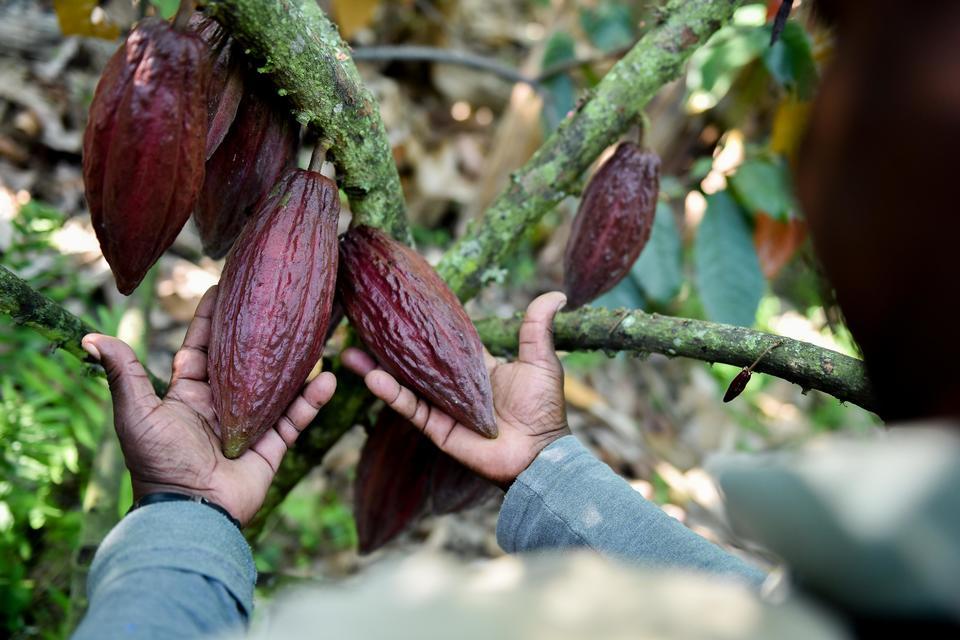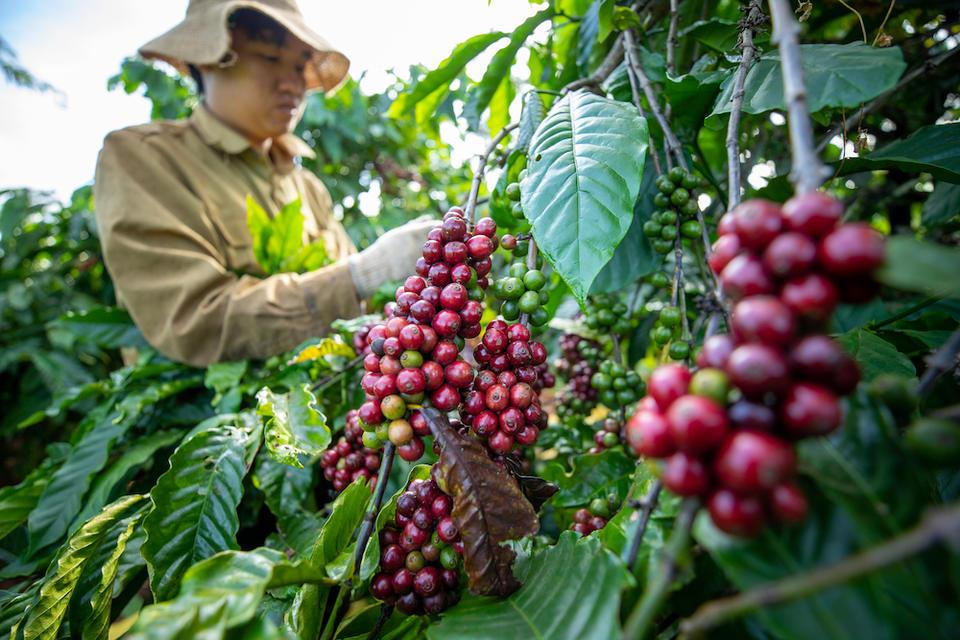Blog Mass-produced coffee and chocolate puts nature and social welfare at risk, scientists warn, with urgent transformation needed
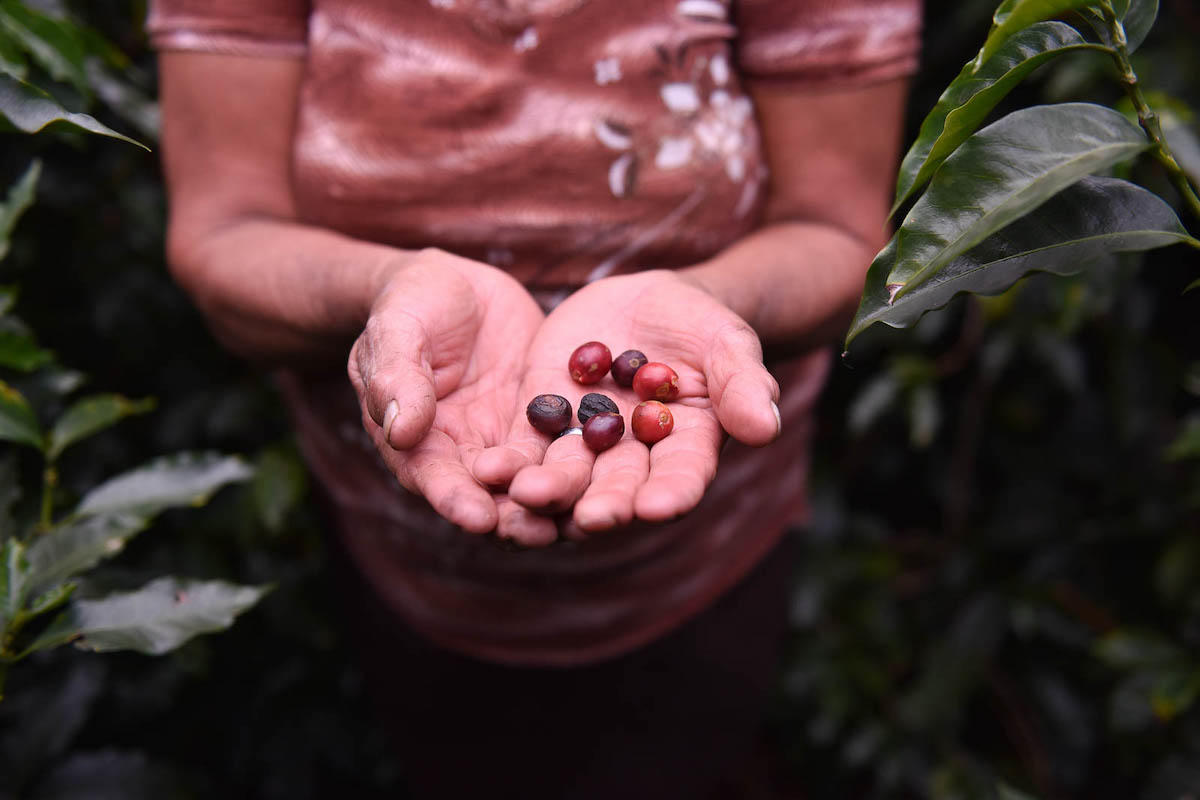
Higher prices are among reforms needed to tackle farmer neglect, child labor and environmental damage caused by production of tropical commodities at scale.
Growing global demand for commodities grown in tropical conditions, like coffee and cocoa beans for chocolate, is destroying natural ecosystems and social welfare, scientists warn. Mass production can involve unethical practices at scale, with farmer neglect, child labor and severe environmental damage such as deforestation and increased use of pesticides among the most threatening practices requiring urgent reform.
In research published in the evolutionary journal Trends in Ecology and Evolution, ‘Transforming Tropical Agroforestry towards High Socio-Ecological Standards,’ scientists urge stricter adherence to the United Nations Sustainable Development Goals, and outline measures required to transforming the production of tropical commodities for a more sustainable and resilient future.
The measures include higher pricing for indigenous crop varieties, placing a premium on Peruvian chocolate for example, where many fine-flavor cocoa bean varieties originate, and transforming management to nurture instead of destroy natural ecosystems. For example, both coffee and cocoa are native to forests in South America and Africa, and require shade from nearby trees to improve biodiversity. Yet shade trees are often cut down in plantations, with reduced biodiversity leading to heavier pesticides use.
“What we’re calling for is more diversity in cacao and coffee agroforestry systems, and crops, especially in countries of origin. This allows for the development of price differentiation schemes to offer premiums for countries of origin, and stops the trend of a few multinationals controlling everything. More diverse companies are needed too, with social and ecological commitments to build real relationships with farmers, to support them during difficult times, such as during this pandemic.”
Evert Thomas, Scientist at the Alliance of Bioversity International and CIAT
“Products like coffee and cocoa should be understood as luxury products if we want to achieve sustainability. This requires higher socio-ecological standards in cultivation – but also awareness regarding marketing, consumption and demand. The average consumption of chocolate in Germany, for example, is over 11 kilograms per capita – simply too much if high socio-ecological standards are to be enforced.”
Bea Maas, first author of the article at the University of Vienna
Current prices do not meet sustainability goals and, for most smallholder farmers, are too low to provide a comfortable living, researchers added. Fairtrade and other common certification schemes are often ad-hoc, and not applied across the industry. For example, programs by renowned traders and manufacturers such as Mars, Hershey and Ferrero include five different cocoa standards and certifications, with differing integration of ecosystem services and considerations of genetic diversity or working conditions of farmers.
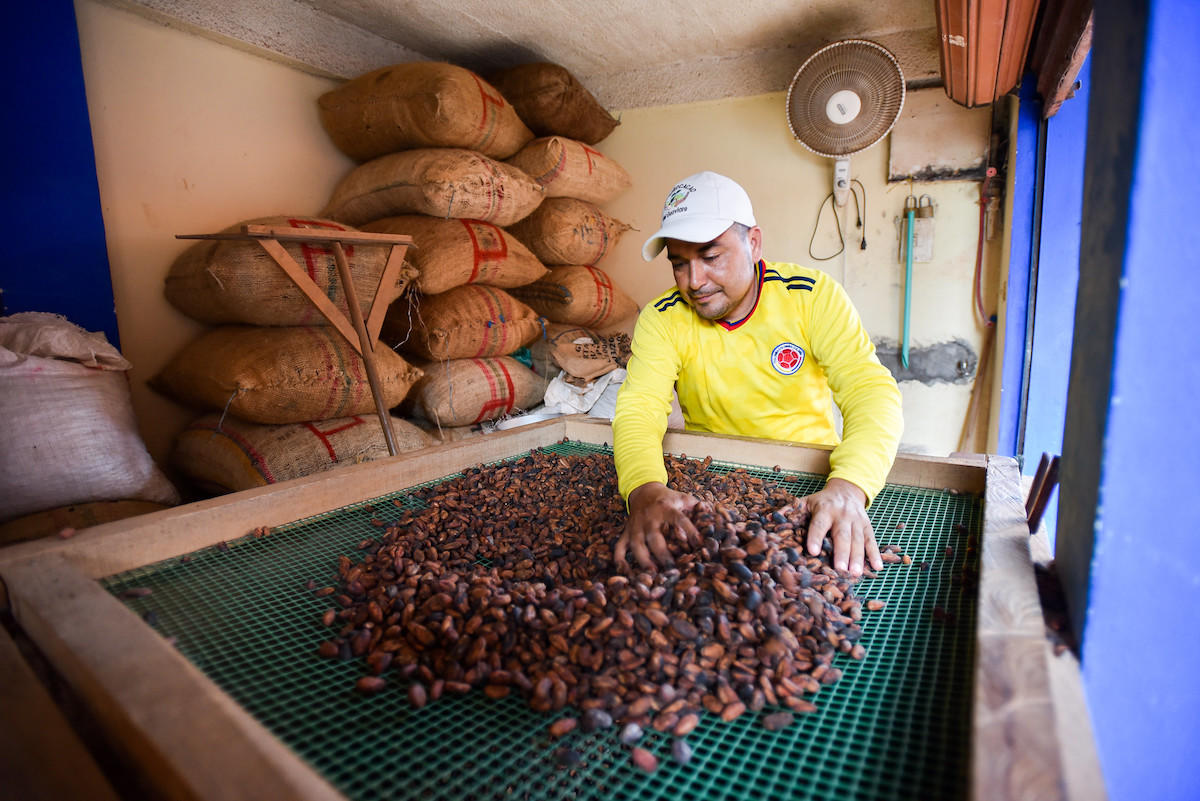
Cacao has peace-building potential in Colombia. See related blog at the end of this article. Credit: N.Palmer
While the Sustainable Development Goals primarily give developed countries responsibility for social and economic development in developing countries, responsibility for sustainable land development is too often handed over, the researchers said. “There is an urgent need to improve communication and collaboration between science, practice, and policy makers to align sustainability goals. This involves not only better informing farmers and policymakers, but improving cooperation between different interest groups,” said Maas.
The authors emphasized that communication must be improved between research groups, farmers, scientists, policy makers and chocolate and coffee companies, to effectively translate scientific evidence into practice. This involves aligning scientific evidence about what measures benefit the environment and social welfare, with actual implementation across the industry. And, reconciling idealistic ideas at play in high-street coffee and chocolate consumer marketing with the reality of cacao and coffee production on the farm.
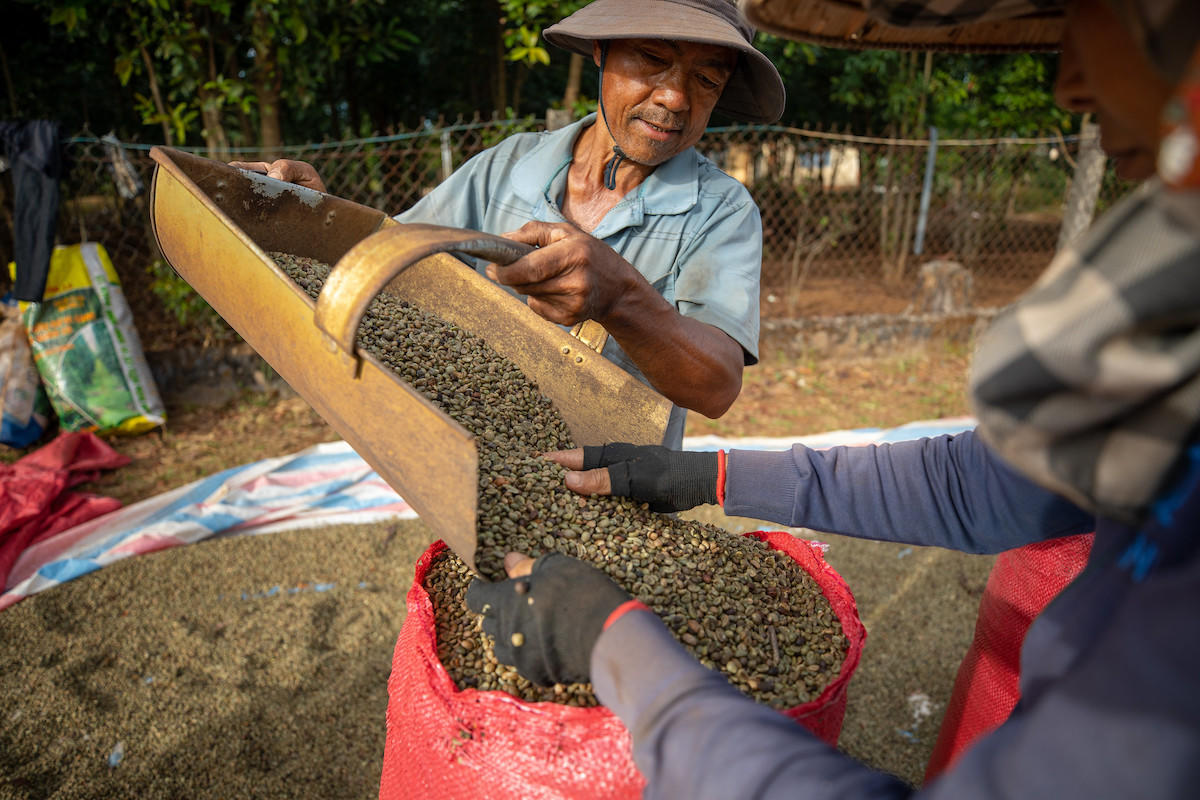
Vietnam has rapidly grown to become the 2nd largest global coffee producer. See related blog at the end of this article. Credit: Trong Chinh
There are already successful examples of improved cocoa and coffee management for socio-economic and environmental wellbeing. Among them are Norandino Ltda cooperative, representing 5,400 smallholder farmers in northern Peru. The group has produced an ecologically certified, Fairtrade and high-quality chocolate, which fetches twice the regular market price, while also protecting smallholder farmers against market fluctuations and promoting local cocoa bean varieties for future protection.
The initiative was a collaboration between researchers, farmers, industry and policy makers. Carolina Ocampo-Ariza, paper author and Professor Teja Tscharntke from the Agroecology group at the University of Göttingen added: “Such exemplary initiatives that benefit the livelihoods of smallholder farmers while maximizing nature conservation should be the focus of interdisciplinary research, now more than ever before.”
What is urgently needed next, is integration of scientific evidence and academic research about what will work to make the sector more sustainable, with implementation on the ground. This involves bringing together non-academic perspectives, including those of communities involved in production of coffee and cocoa for example, for long-term impact, authors note.
Access the full article: “Transforming Tropical Agroforestry towards High Socio-Ecological Standards“

